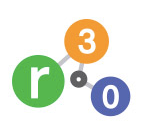The Sustainability Context Group (SCG) was born of a need, and is now transitioning into a new phase of maturation as it passes into the stewardship of r3.0.
The Group was conceived in 2012, in the high-ceilinged seminar room at Tellus Institute that overlooked the Public Garden in Boston Common, fittingly. Center for Sustainable Organizations (CSO) Executive Director Mark McElroy had just made a presentation on his new book, Corporate Sustainability Management, which introduced the notion of Context-Based Sustainability (CBS). Tellus Vice President and Senior Fellow Allen White hosted the seminar, given his role as Co-Founder of the Global Reporting Initiative (GRI) where he was the primary driver behind the Sustainability Context Principle that GRI unveiled in its second generation of Sustainability Reporting Guidelines (G2) a decade earlier. Also in attendance was Bill Baue, now Senior Director of r3.0, who was increasingly advocating for what they endearingly called Susty Context.
While the details of the actual conversation are hazy at this remove, a few aspects are crystal clear. Elements are encapsulated in an interview Baue conducted with White a couple years later, in which White told Baue:
Sustainability requires contextualization within thresholds; that’s what sustainability is all about… While to this day in the reporting world, as you well know, Sustainability Context is incipient, uneven, and occasional.
This was the crux of the issue that Baue, McElroy, and White grappled with after the seminar — the mismatch between the clear need to apply Sustainability Context if we are to achieve sustainability, and the failure of the field to apply it — neither in word nor deed. In its definitional clarity, the Sustainability Context Principle, as first articulated in G2, notes that
sustainability reporting draws significant meaning from the larger context of how performance at the organisational level affects economic, environmental,and social capital formation and depletion at a local, regional, or global level…[R]eporting organisations should consider their individual performance in the … context of the limits and demands placed on economic, environmental, or social resources at a macro-level.
In other words, Sustainability Context calls for making the micro-macro link between organizational-level impacts on ecological, social, and economic resources, and the systems-level carrying capacities of these capitals (natural, social, human, built, and economic). Stated slightly differently, Sustainability Context calls for respecting ecological, social, and economic thresholds at the macro systems level, via fair just, and proportionate allocations of accountability at the micro organizational level.
(Flash-forward: Their shared sense that next-to-nobody actually implemented Sustainability Context was empirically validated a half-decade later. A peer-reviewed study of 40,000 corporate responsibility reports issued from 2000–20013, led by Anders Bjørn, found that a mere 5% of companies even mention “ecological limits” (or related keywords), and an infinitesimal 0.258% factor ecological limits into product development or corporate strategy (neither word nor deed). And this study only looked at ecological limits; reporting and practice on thresholds around social demands has always lagged even further behind.)
“What’s needed is a collective voice to champion Sustainability Context at the structural level,” White asserted. This suggestion resonated, and soon thereafter, Baue and McElroy co-founded the Sustainability Context Group, gathering together about 150 of the most prominent and dedicated experts committed to Context-Based Sustainability in a diversity of fields — business, investment, civil society, academic, government, etc.. Since its founding, Susty Context Group members have conducted periodic opt-in advocacy to advance Sustainability Context. In its first year, the Group submitted a raft of Public Comments to the major reporting frameworks:
- Global Reporting Initiative (GRI) on G4, the fourth generation of Sustainability Reporting Guidelines (Submitted24 September 2012 with 66 signatories), and its GHG Emissions Guidance (Submitted 12 November 2012 with 27 signatories);
- International Integrated Reporting Council (IIRC) on its International <IR> Framework (Submitted 8 July 2013 with 63 signatories);
- Sustainability Accounting Standards Board (SAAB) on its Conceptual Framework (Submitted 26 July 2013 with 37 signatories);
- Global Initiative for Sustainability Ratings (GISR) on its Principles (Submitted 2 April 2013 with 57 signatories).
Of these four organizations, GISR was the only one that addressed the Susty Context Group’s input. (When GISR officially disbanded in 2019, it transferred custodianship of its Principles to r3.0.)
Perhaps the most significant early influence the Susty Context Group exerted was in instigating what became the Science Based Targets Initiative (SBTi). At the 2012 Ceres Conference in Boston, SCG Co-Founder Baue pointed out to World Resources Institute (WRI) VP for Science & Research (and SCG member) Janet Ranganathan that the Greenhouse Gas Protocol, the gold standard for corporate GHG emissions reporting, lacked an explicit tie-in to the climate science — in particular, the threshold of the carbon budget. Ranganathan invited Baue to meet with her and GHG Protocol Global Director Pankaj Bhatia in Washington, DC that summer, and continued to confer with them as they explored whether to revise the GHG Protocol, which they ultimately decided was too complex, so they set about considering other options.
In the summer of 2013, WRI hosted a meeting with Baue, SCG Co-Founder Mark McElroy, Nigel Topping of CDP (at the time — now High Level Champion for Climate Action at COP26), Marty Spitzer of WWF, and John Sottong of EPA (now with WRI) that resulted in agreement to launch what became the Science Based Targets initiative. Baue and McElroy have served on SBTi’s Technical Advisory Group ever since its founding, and are currently engaging with the initiative on some of its governance and methodological shortcomings.
Going forward, the Susty Context Group will continue to conduct advocacy to support more robust application of thresholds & allocations, in support of the Sustainability Context Principle, under the auspices of r3.0. In fact, the work of the Sustainability Context Group dovetails perfectly with the Global Thresholds & Allocations Council (GTAC) that r3.0 is also incubating.
